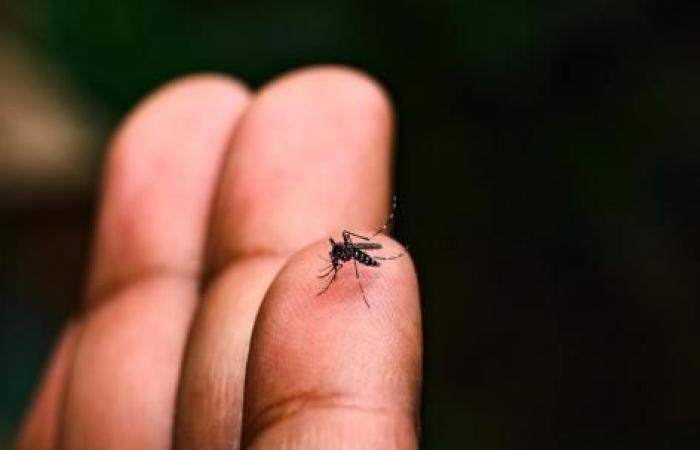THE ESSENTIAL
- Around 19% of dengue cases recorded in 2024 – a world record with more than 12.7 million – would be linked to increasing temperatures due to climate change, according to researchers.
- The mosquitoes that carry the disease thrive between 20 and 29°C, making millions of people vulnerable in the years to come.
- However, solutions are emerging: the Wolbachia bacteria, introduced into mosquitoes, reduced cases by 90% in a Brazilian city.
The number of dengue cases reached a historic record this year, with more than 12.7 million cases recorded across the world, almost double compared to 2023, according to estimates from the World Health Organization. But behind these alarming figures, a question emerges: to what extent is global warming contributing to this outbreak? Up to a fifth, according to a new study carried out by researchers at Stanford University, in the United States.
A disease sensitive to global warming
Dengue fever, a viral infection transmitted through the bites of infected mosquitoes, causes high fever, pain and can be fatal in some cases. Historically limited to tropical and subtropical regions, it is now extending to areas previously spared, due to rising temperatures. “Dengue is an excellent example for studying the impact of climate, because it is highly sensitive to temperature”specifies Erin Mordecai, ecologist specializing in infectious diseases, in a press release.
Dengue mosquitoes thrive in temperatures between 20 and 29°C. As temperatures rise, these insects invade new areas, spreading disease. According to research, around 19% of dengue cases recorded this year may thus “be attributed to global warming already underway”. High altitude areas, such as certain regions of Peru, Mexico or Brazil, where temperatures will soon reach the ideal range for dengue, could well see the number of cases increase by 200% within 25 years, researchers warn.
Solutions to reduce cases of dengue fever
The danger is palpable: at least 257 million people currently live in areas where global warming could double infection rates. This situation reflects a global health challenge, but also tangible proof of the consequences of climate change on human health, as well as the urgency of fighting to curb the spread of diseases such as dengue.
However, some solutions are on the horizon. An innovative method involves introducing mosquitoes infected with the bacteria Wolbachiawhich blocks their ability to transmit dengue. An experiment in Niterói, Brazil, reduced dengue cases by 90%, even during the worst national epidemic. According to Katie Anders of the World Mosquito Program, this method “provides lasting protection against dengue fever outbreaks, which are increasingly common globally.”






